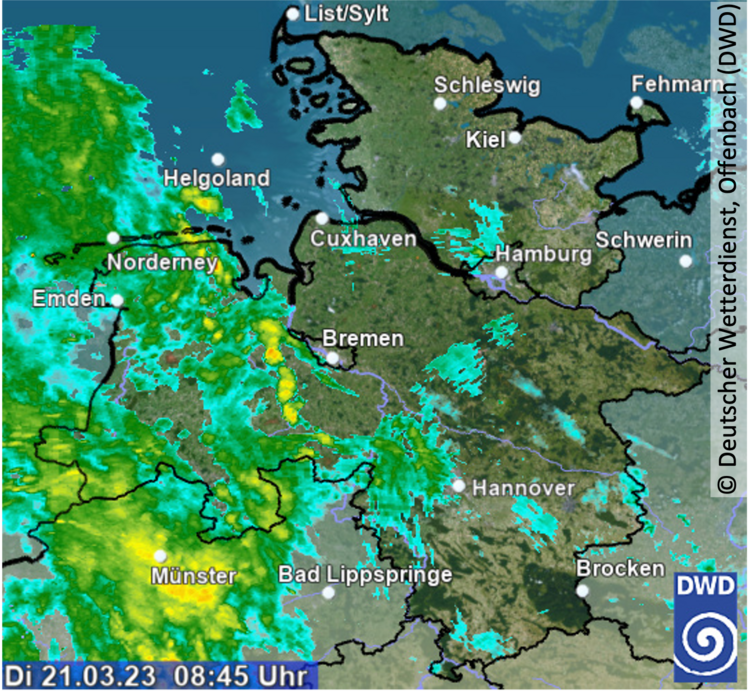Zukunftslabor Wasser (ZLW) – WP 4.2: Nowcasting of extreme precipitation (NextRain)

| Led by: | Prof. Dr.-Ing. Uwe Haberlandt |
| Team: | Adina Brandt, M.Sc. |
| Year: | 2023 |
| Date: | 17-05-23 |
| Funding: | Niedersächsisches Ministerium für Wissenschaft und Kultur |
| Duration: | 08/2022 – 07/2027 |
Extreme precipitation events commonly lead to floods in both urban and rural areas, causing sometimes significant damage (Neuweiler et al., 2022). Flash floods, in particular, are often the result of convective storms and due to spatial and temporal dynamics they are difficult to predict (Rözer et al., 2021). Projections of climate change impacts indicate that extreme precipitation will occur more frequently in the future (Neuweiler et al., 2022). Therefore, early warning systems are essential to minimize the damage caused by floods (Rözer et al., 2021).
The aim of this subproject is to improve the short-term forecasting (nowcasting) of heavy precipitation events as input for early warning models of flash floods in small catchments and of pluvial floods. Nowcasting is mainly based on high spatial resolution radar data and point ground measurements. The resulting precipitation nowcasts will then be used in a hydrological model for a more detailed study of flash floods.
The following focus areas will be considered in more detail in this subproject:
- Classification of rainfall and runoff events
- Optimal online adjustment of precipitation information based on radar data and ground measurements
- Further development of radar nowcasts to nonlinear tracking with soft computing approaches (ANN, fuzzy, k-nn resampling, etc.)
- Coupling possibilities of numerical weather prediction models and radar tracking
- Hydrological modelling of flash floods, including model calibration and validation
- Analysis of the prediction accuracy of flash floods
- Uncertainty quantification and ensemble nowcasts
The described investigations build on the results of the BMBF project EVUS ("Real-time prediction of pluvial floods and induced water contamination in urban areas") (Shehu & Haberlandt, 2021a; Shehu & Haberlandt, 2021b) and are closely coupled with the subprojects WP 4.1, 4.3 and 4.4
